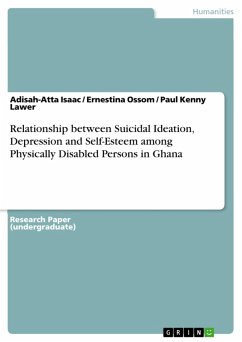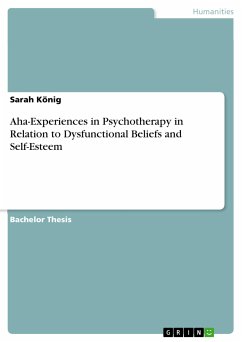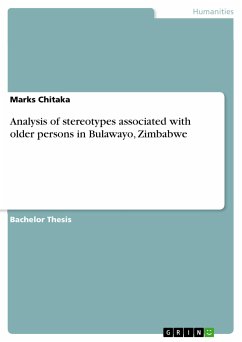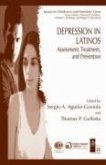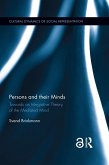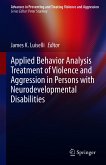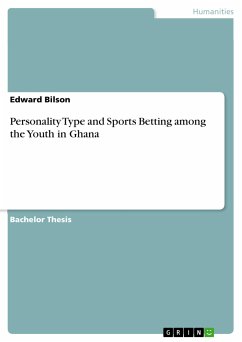Research Paper (undergraduate) from the year 2016 in the subject Psychology - Clinical Psychology, Psychopathology, Prevention, grade: A, University of Ghana, Legon, language: English, abstract: The study aimed at examining the relationship between self-esteem, depression and suicidal ideation among the physically disabled in Ghana. Purposive sampling was used to select one Hundred and Eighty (180). Specifically, sixty (60) participants who are visually impaired, sixty (60) who have hearing impairment and sixty (60) who have mobility impairment were selected for the study respectively. In view of this, two hypotheses were stated and tested using the statistical package for social sciences (SPSS). Hundred and eighty (180) questionnaires were distributed. A modified version Beck Depression Inventory (BDI) was used to test the depression level of the participant's level of depression. Suicidal ideation was measured by using Positive and Negative Suicidal Ideation (PANSI) with 14 items self-report instrument. The outcome of the study revealed that:1. Self-esteem and depression related significantly with suicidal ideation. 2. Physical disability type had a significant influence on self-esteem and depression. 3.Mobility impaired had higher self-esteem than those who are visually impaired. 4. There was no significant difference between hearing impaired and visually impaired on depression. 5.There was no significant difference between mobility impaired and hearing impaired on suicidal ideation.
Dieser Download kann aus rechtlichen Gründen nur mit Rechnungsadresse in A, B, BG, CY, CZ, D, DK, EW, E, FIN, F, GR, HR, H, IRL, I, LT, L, LR, M, NL, PL, P, R, S, SLO, SK ausgeliefert werden.

